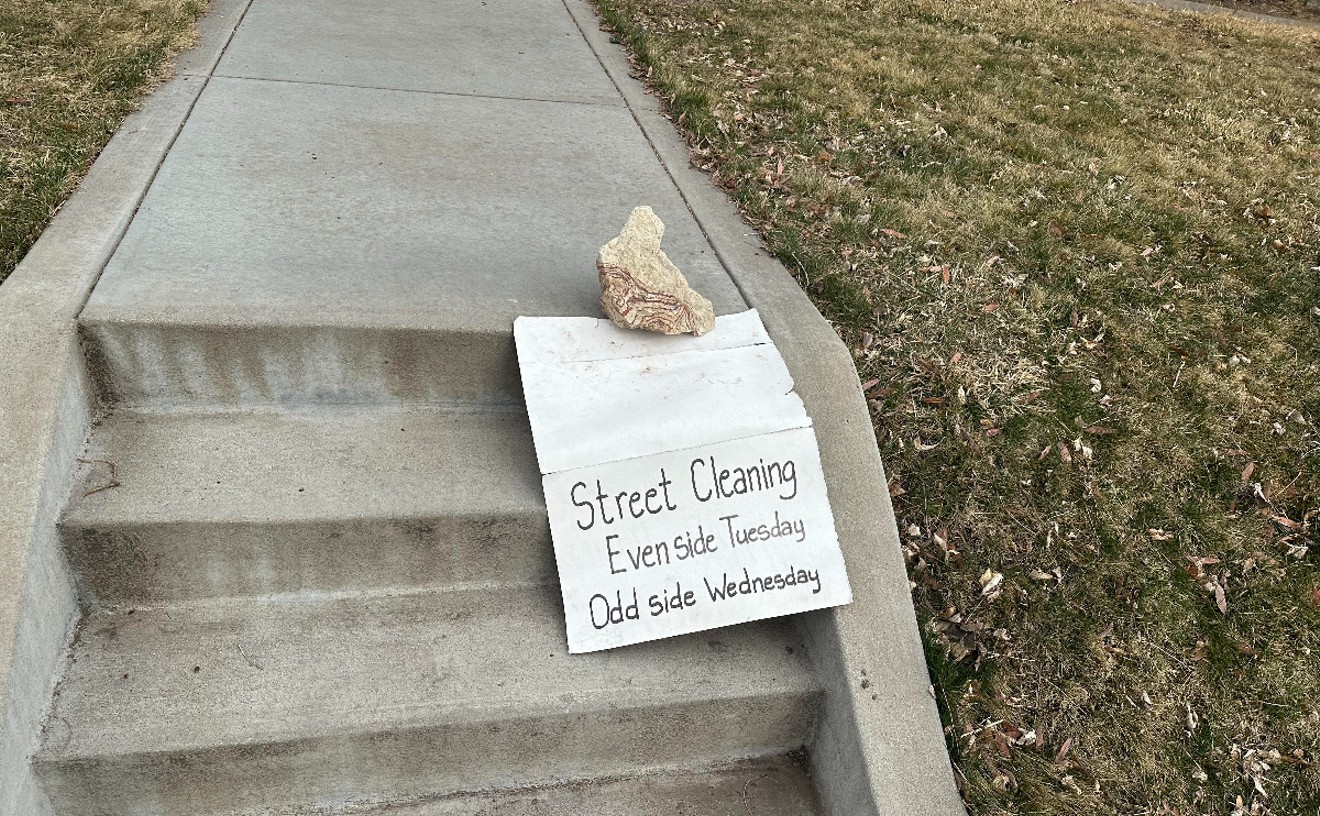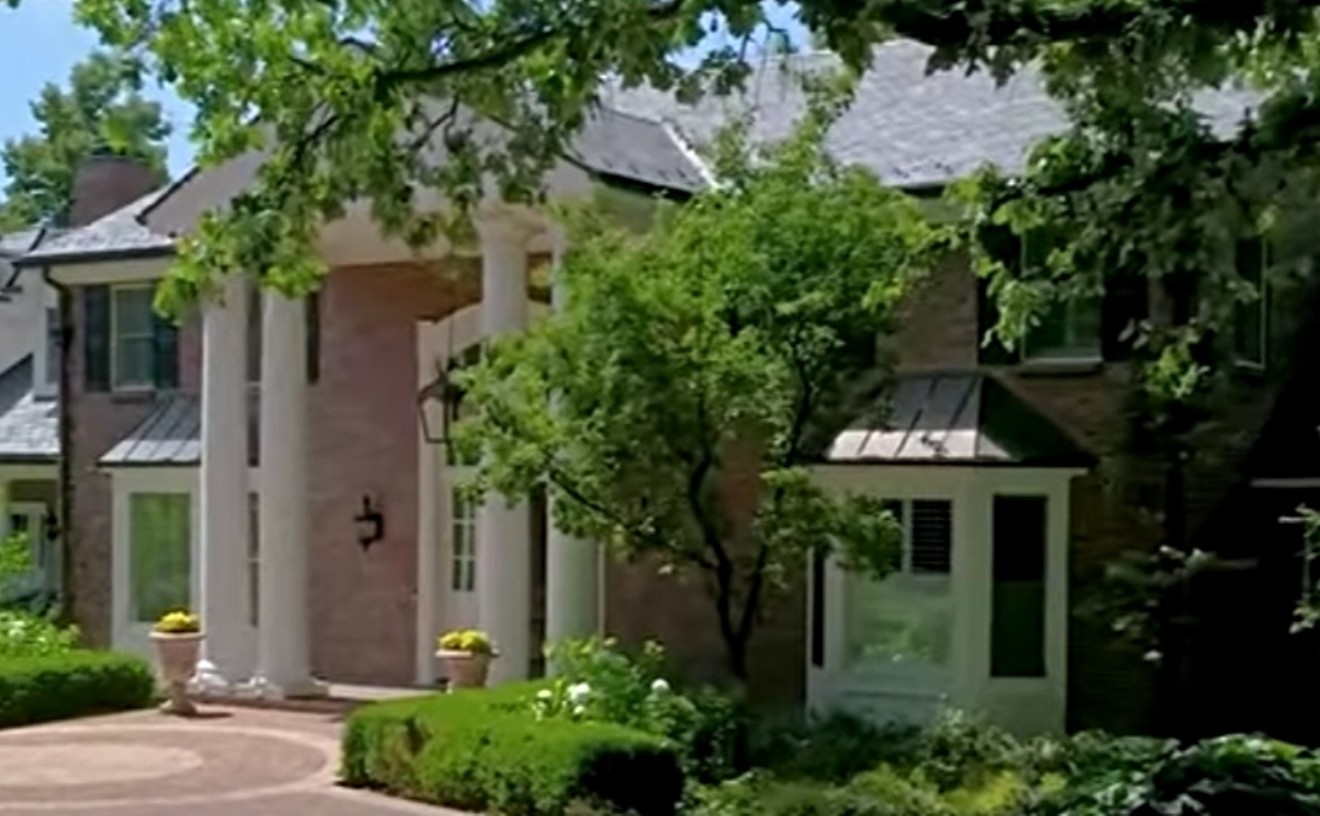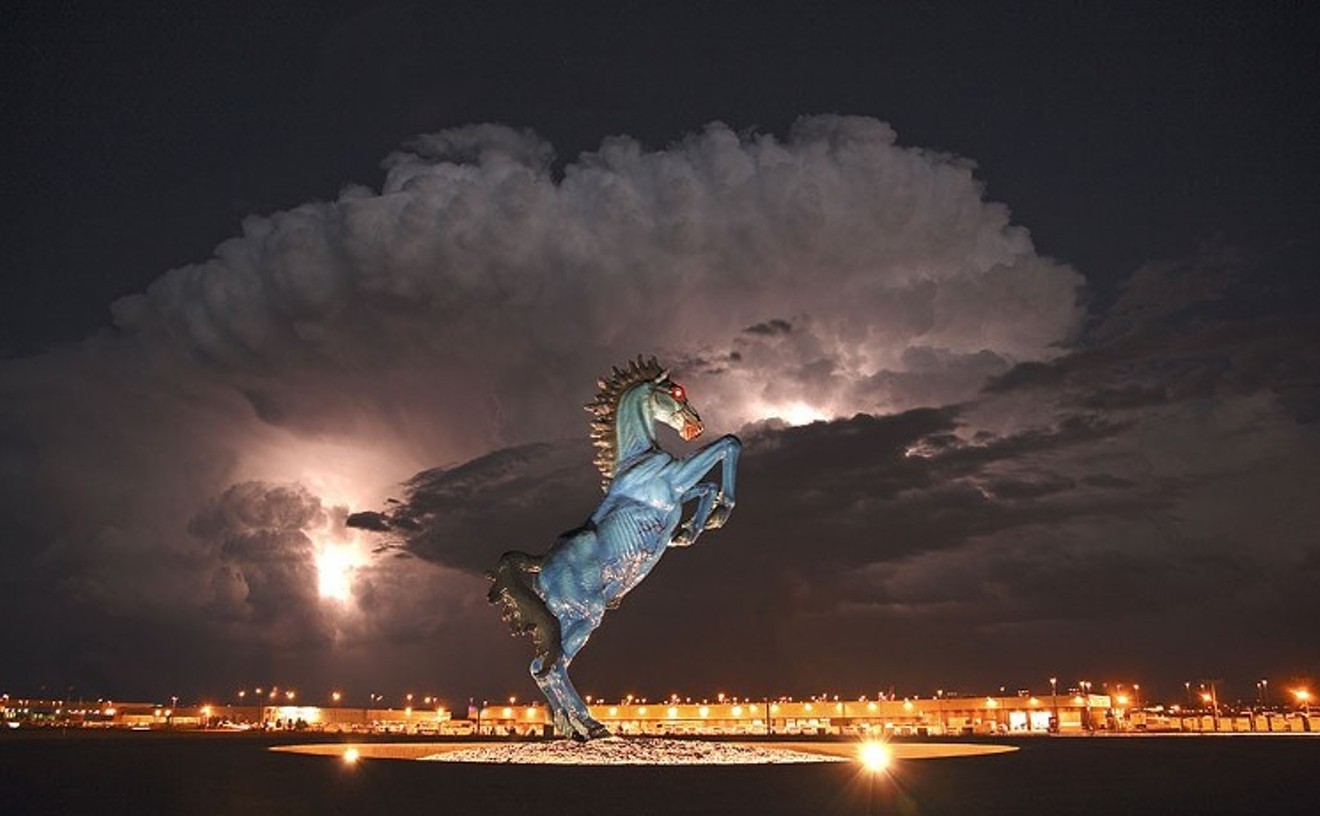Now Keisler is basking in the glow of a small-stakes victory that she says sheds light on the tightfisted ways of some of Denver's richest businessmen. The unlikely dispute between the beachcomber and the Arlbergers, who maintain a private ski lodge adjacent to the Winter Park ski area, began last March. That's when the club's lodge manager fired her, citing poor job performance, tardiness and "insubordination." Keisler, however, suspected the club had another reason for dumping her--to avoid paying her the bonus she'd been promised if she stuck around to scrub floors for the entire ski season.
Last May a referee for the Colorado Department of Labor and Employment agreed with Keisler, finding her testimony more credible than that of club manager Ron Van Vleet and assistant manager Amy Dunckel. At a May 20 hearing, Dunckel cited a single popcorn kernel she had discovered in one of the club's bathrooms as proof that Keisler was slacking off.
But referee D. James Catalano appeared unimpressed by Dunckel's kernel knowledge. "The referee is not persuaded that the reason for the claimant's discharge had anything to do with performance, with her attendance, with insubordination, or any actions on her part other than the employer's desire to let her go before she might be eligible for a company paid bonus and two-week vacation," he wrote in his ruling. Catalano ordered the organization to pay Keisler roughly $2,100 in unemployment benefits. The club appealed but lost again this past August when the state's Industrial Claim Appeals Office upheld Catalano's decision.
Now back at her family's home in the exclusive San Diego suburb of San Marcos, Keisler says she was surprised by how aggressively the Arlbergers fought the case. "I saw what kind of money came through there," she says, adding that the club's parking lot was typically filled with Lexuses and Range Rovers. "I wouldn't have expected such an elite club to screw me out of money." Had the club simply paid her the bonus and coughed up the two-week paid vacation, Keisler says, it could have gotten off for about $1,380.
The Arlberg Club, whose membership rolls include railroad tycoon Philip Anschutz, beer barons Joseph, Peter and William Coors and Denver Cadillac dealer Kent Rickenbaugh, has traditionally taken pains to stay out of the public eye. Other than to insist that Keisler was dismissed for cause, current club president W. Bart Berger declines to discuss the case in detail. "The Arlberg Club is a ski club, and any article about the dismissal of the housekeeper would be, quite frankly, a waste of trees," he says.
Berger adds that in fighting the case, the club was simply taking advantage of a public process available to any employer. But Keisler says that in her experience, even the toughest boss would have a hard time matching the Arlbergers in pinching pennies. In fact, she says her first assignment upon being hired in March 1995 was to rake the grounds of the club and plant grass seed "because they wouldn't spend the money to get a landscaper out there."
When ski season arrived last fall, Keisler says she was expected to clean 42 bathrooms per day from floor to ceiling, as well as tending to 22 sleeping rooms. She says she was also responsible for the large main lodge, which includes a dining hall, a pool-table room, a laundry room and a children's room. One week, she says, she worked 96 hours. "I got to the point where I was exhausted, but I would show up," she adds.
Club rules expressly prohibit tipping employees. And Keisler says the members took an equally niggardly approach to their facility, which rents rooms to members during the ski season. (According to the most recent fee schedule available, from 1991, members pay initiation fees that range from $4,500 for "regular proprietary members" to $1,500 for "special woman members," along with annual dues from $600 to $400.)
"When things would be ordered, it would be the cheapest things they could possibly get," says Keisler. "The place is not well-built. The walls aren't even finished inside." Staff members referred to the bedspreads as "the Salvation Army bedspreads," she adds. "They were old and hideous."
But despite its alleged decrepitude, the mountain lodge is a crown jewel for the Arlbergers. As Keisler explains it, "You come off the ski run and ski through the trees, and you're at the back door. That's what's so great about the Arlberg Club."
Founded in 1929, when many Coloradans were about to be staggered by the Great Depression, the Arlberg Club is one of the state's most restrictive private societies. Laid out as an alpine cousin to the Denver Country Club, the organization's 160-acre estate at Winter Park has served as a mountain playground for Denver bluebloods and their families ever since. Though the club has enjoyed taxpayer subsidies--in 1939 the federal Works Progress Administration built a ski slide on the mountain--it pays no income tax, because it is a nonprofit organization. (The Arlbergers' charitable purpose, according to documents on file with the Internal Revenue Service, is "the development of expert downhill skiing among Colorado skiers.")
In its most recent available tax returns, from 1993, the club reported income of nearly half a million dollars from room rental, meals and member dues. It also collected $74,500 in rental fees from the Winter Park Recreational Association, a nonprofit cousin that operates the Winter Park ski area as an agent of the City of Denver. (The WPRA pays rent because part of its ski runs cross land owned by the Arlberg Club.)
The club has always enjoyed a cozy relationship with the city and the WPRA. Several WPRA boardmembers have doubled as Arlbergers, including Thor Groswold, the father of current WPRA president Gerald F. Groswold, and Allen R. Phipps, the Denver multimillionaire who con-vinced the city to form the WPRA in 1950. WPRA employees to this day check the IDs of people who try to drive up the club's access road, which connects to the employee parking lot of the Mary Jane ski area.
Keisler, meanwhile, says she won't be returning to the Arlberg Club anytime soon. "I have friends still there, and I'll still visit to ski," she says. "But I probably will never want to live there again."
Her attorney, William E. Benjamin, says the Arlberg Club's conduct in the case was no different from that of hundreds of other employers he's dealt with in unemployment disputes. Says Benjamin of the club's motive for fighting Keisler's claim so ardently, "I would assume it's more a desire to save a few bucks than anything else."
To read related Westword stories, visit www.westword.com.










